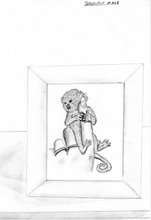Memorize From General to Specific. Study the big picture, then learn the details. Learning and memorization are like a funnel. The process is not very effective when the small end is at the top.
Cramming Does Not Work! Cramming for an exam only commits the information to your short-term memory. You will forget when you never really learned.
Four Basic Reasons Why We Forget Pieces of Information: 1. Don't use the information.
2. Confuse it with other information.
3. Decide the information does not match what you already believe.
4. Never really learned the information in the first place.
Keys To Remembering: 1.
Be interested. Pay attention. Consciously choose to remember. Establish a need to
remember.
2.
Visualize. Picture in your mind what you wish to remember.
3.
Relate. Relate and form associations between the new ideas and information you
wish to remember and information, ideas, persons, things, etc. that you already know.
4.
Repeat. Even though something is initially learned, it will more than likely be
forgotten if not overlearned. Be sure to repeat information in your own words.




